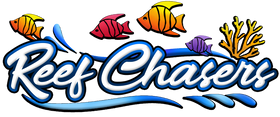SUN CORAL CARE OVERVIEW
LIGHT: Non-Photosynthetic. These corals do not require light.
FOOD: FREQUENT FEEDING. This coral will benefit from FREQUENT spot feeding. Unlike most other corals which get a large amount of its energy from light, sun corals require lots of food. Our method is high import, high export. You can learn more about Feeding and Filtration in our article Feeding, Filtration and your Reef Tank.
FLOW: LOW-MODERATE. Sun corals benefit from moderate water movement which will be enough to keep the coral clean of any detritus and debris while bringing food to its many polyps. Too much flow, especially direct flow, can cause damage to the corals tissue or an inability to capture food. You can read more about Flow and its overall impact on your reef tank in our article Flow and your Reef Tank
DIFFICULTY: EXPERT. Although beautiful and vibrant in their orange coloration, sun corals tend to require extra effort to keep and keep happy. Further more, their polyps tend to be out more often at night then during the day. This may be a survival response (since they do not require day time light) and keeping their polyps hidden may help verse predators in the wild.
PRICE: MODERATE. Sun corals aren't that readily available via aquaculture and are difficult to keep. At the same time, they are also not the most sought after coral in the hobby. For these reasons the price tends to be moderate.
COLLECTION ZONE: Indo-Pacific
SCIENTIFIC NAME: Tubastraea, also known as sun coral or sun polyps, is a genus of coral in the phylum Cnidaria. It is a cup coral in the family Dendrophylliidae.
AGGRESSION: PEACEFUL. We haven't seen any specific aggressions from this coral type. Still, we recommend providing at least 2-3" space for the health and growth of the coral.
NATURAL TEMPERATURE: 82 °F / 28 °C although most corals can adapt and survive in temps as low as 77 degrees and as high as 84 degrees. You can read more about temperature and how it affects your reef tank in our article Temperature and your Reef Tank.
PH: Recommend 8.0-8.4, we tend to run around 8.2-8.3 over 24 hours. You can read more about pH in our article pH and your Reef Tank
NITRATE: 5-10, try to keep stable. You can read more about nitrate and our approach to maintaining it in our article Nutrients and your Reef Tank
PHOSPHATE: 0.05-0.1, try to keep stable. You can read more about Phosphate and our approach to maintaining it in our article Nutrients and your Reef Tank
ALKALINITY: Recommend 8-9 dKh. You can read more about how we maintain our alkalinity in our article Alkalinity, Calcium and your Reef Tank
CALCIUM: Recommend 400-450. You can read more about how we maintain our calcium in our article Alkalinity, Calcium and your Reef Tank
More About Sun Corals
Tubastraea are large polyp stony (LPS) corals in the Dendrophylliidae family. They are also referred to as “Sun corals.” Sun corals start out as single polyps, but they typically develop into colonies that are colored red, orange, yellow, and sometimes pink. The tentacles of a Sun coral may be the same color as polyps or lighter in color.

Tubastraea corals are non-photosynthetic, so they require no lighting at all. Bear in mind that most corals can be gradually adapted to lighting conditions outside of their normal preferences. In the wild reef, Tubastraea corals are mainly found growing in low light areas, such as caves. However, they have also found growing in direct light sometimes, but usually will be pushed back by zooxanthellate corals that compete for areas with optimal lighting. Sun corals should be placed in lower light areas, then slowly moved out/up into a more brightly lit area over a period of several days to a couple of weeks depending on the intensity of the lighting in your reef. Sun corals also prefer to be placed in areas with moderate to stronger water flows. This allows them more opportunities to feed - and these corals get hungry.

With Sun corals being unable to receive nutrition from zooxanthellae, they have to rely on catching food particulates in the water flowing around them. This may not be enough for your Sun coral depending on the variety of zooplankton/food in your reef. It is recommended that you target feed your Sun corals with Mysis shrimp, brine shrimp, or some type of food preparation daily - and may need several opportunities to eat for larger colonies. To maintain good health, calcium, strontium, and other trace elements should be monitored and added as needed.

Sun corals are not aggressive to other corals. That said, they have poor defenses against other corals who possess sweeper tentacles. Be sure to provide a little space for your Sun corals to grow and thrive.
